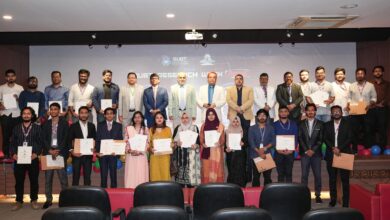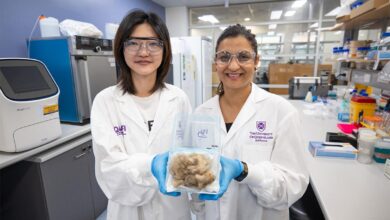A joint HKU-CUHK study confirms smoking and obesity increase risk of severe COVID-19 by 65%-81%

Researchers from the School of Public Health, LKS Faculty of Medicine of The University of Hong Kong (HKUMed), in collaboration with The Chinese University of Hong Kong (CUHK)’s Faculty of Medicine (CU Medicine), confirmed smoking, obesity and lower socioeconomic position (SEP) [1]likely increase the risk of contracting mild to severe COVID-19, using data from large scale genome-wide association studies. Other exposures thought to be related to COVID-19 risk, such as glycaemic traits, type 2 diabetes, and vitamin D, are likely unrelated. The researchers also found angiotensin-converting enzyme 2 (ACE2), the key receptor of SARS-CoV-2, mediates part of the detrimental effect of obesity and SEP. The findings have been published in the Journal of Medical Virology, a peer-reviewed virology journal. [link to the publication]
Background
Epidemiologic studies show a variety of factors related to increased risk of COVID-19, such as type 2 diabetes[2], although paradoxical findings have also been reported, such as an inverse association of smoking with COVID-19 severity[3]. However, these associations may not be causal due to limitations in observational studies. Using better designs to understand the determinants of COVID-19 risk would be particularly important to devise effective mitigation measures to reduce the risk of COVID-19 in the population.
In this regard, the research team conducted a comprehensive assessment of the role of multiple risk factors (vitamin D, glycaemic traits, blood pressure, smoking, obesity and SEP) in various severities of COVID-19 risk using a method called Mendelian randomisation. As genetic variants are used, this approach might circumvent some of the limitations of conventional observational epidemiologic studies. The research team also explored whether ACE2 mediates any of these detrimental effects.
Research methods and findings
Using Mendelian randomisation, researchers extracted genetic variants related to the various risk factors described above (N<=3,037,499), and assessed their relationship with COVID-19 risk using large genetic summary data from genome-wide association studies (N<=2,942,817). The use of such large datasets also helps assess if previous negative findings on risk factors reported in smaller Mendelian randomization studies, such as type 2 diabetes and vitamin D[4], were due to the small sample size.
The research team found that smoking, obesity and lower SEP likely increase the risk of COVID-19.
For example, one standard deviation increase (SD) of body mass index (BMI) likely
- increases risk of severe COVID-19 by 81%
- Increases risk of COVID-19 hospitalisation by 55%
- increases risk of contracting COVID-19 by18%
Strong social gradations were also found in COVID-19 risks, with people of lower SEP tend to have a higher risk of all forms of COVID-19. Previous findings on the harms associated with smoking were also confirmed. ‘Using a less biased design, our study confirms the importance of smoking and obesity in increasing the risk of contracting all forms of COVID-19. Our study also shows that targeting ACE2 may be a way to mitigate the risk of COVID-19 among those who are obese or overweight, or of lower SEP, and may help inform the corresponding drug development,’ said Dr Ryan Au Yeung Shiu-lun, Assistant Professor, Division of Epidemiology and Biostatistics of the School of Public Health, HKUMed.
‘SARS-CoV-2 enters the host cells via ACE2. Recently, various therapeutic approaches have been developed for COVID-19 patients with the utilisation of ACE2-modulating medications to effectively control viral entry. Our findings will enhance research into several therapeutic targets for COVID-19 treatment,’ said Professor Kwok Kin-on, Assistant Professor, the Jockey Club School of Public Health and Primary Care, CU Medicine.
To read more : CUHK News Centre




